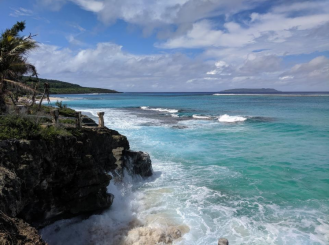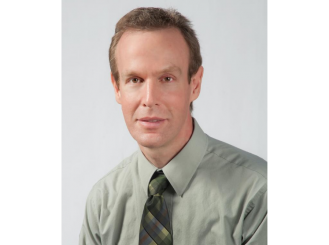Aug 26, 2020
When you picture an idyllic tropical paradise in the heart of the Pacific Ocean, it is likely as the destination for an indulgent dream vacation. For Peter Brett, MD, the journey from the United States mainland to the Commonwealth of the Northern Mariana Islands was not for leisure, but to establish the territory’s first medical oncology practice, essentially from the ground up. Dr. Brett is the medical director of the Commonwealth Healthcare Corporation (CHCC) Cancer Center.
Faced with the daunting task of building out medical oncology services to provide the highest quality cancer care to patients in such a remote and underserved location, Dr. Brett sought the support and guidance of ASCO Practice Consulting Services. The consulting team worked with Dr. Brett and other health care providers in CNMI on a highly individualized plan to maximize available resources and expertise, and to implement new processes with an emphasis on safety, quality, and long-term viability for the practice.
What specific challenges were you facing that led you to reach out to ASCO for consulting services?
PB: We needed to set up a medical oncology practice from scratch in a very remote location, serving a very vulnerable and underserved population, with very few resources. I moved from Northern California to the Commonwealth of the Northern Mariana Islands (CNMI), a U.S. territory composed of several tropical islands; CNMI is about 6,000 miles from California, far out in the Pacific, much closer to Japan and the Philippines than to Hawaii. About 55,000 people live in the CNMI, and before I arrived in May 2019, they'd never had a medical oncologist in the territory.
The territory is tropical and gorgeous, and the people who live here are friendly and welcoming, but often very poor. Most people who live there are Pacific Islanders (Chamorros and Carolinians), or migrants from the Philippines. Most patients have no health insurance or Medicaid only.
I knew we could assemble a team of clinical providers who could provide state-of-the-art medical oncology care, but that this would of course be a big challenge.
What steps did ASCO take to help you and your practice?
PB: Before I arrived, the island already had some experienced pharmacists, a caring nursing staff, and an internist who had an interest in cancer care. After I arrived, we engaged ASCO to help us put together processes that would allow us to work together as a team to provide cancer care.
Two consultants from ASCO came out to the CNMI (a 36-hour trip from ASCO headquarters in the Washington, DC metro area) and spent 2 full weeks with our team. Since then they've followed up by video calls. One consultant worked with our pharmacy staff to ensure that chemotherapy ordering, inventory control, mixing, labeling, and delivery to the nurses was done at a high level, with the primary focus on safety and reducing the chance of error. She also worked closely with our nursing staff to provide hands-on assessment of their current procedures, then worked to improve them to again ensure safe delivery of treatment and reduce the chance of error, and showed how to provide efficient and safe documentation. ASCO provided a wealth of education materials that were very helpful to the nursing staff.
Another consultant worked with the finance department of our hospital to make sure the hospital purchased drugs correctly, billed for drugs and services correctly, captured all appropriate charges, and followed up with payers to make sure drugs and services were paid for. We realized an oncology program would not be sustainable if it were not financially viable. Since many patients have no health insurance, the consultant helped put us in touch with pharmaceutical foundation support to provide discounted or free drugs for these patients.
What steps did you take after the clinical care delivery and operational assessment?
PB: It's still early after the ASCO assessment, but the pharmacy, nursing, and finance teams are working hard to follow the new policies and procedures they reviewed with the ASCO consultants. ASCO plans a series of video meetings over the next year to ensure that we keep up with the improvements they've suggested, and to address new needs that may arise.
What other changes do you hope to make?
PB: Now that we have a fully functional program that serves the needs of a vulnerable population of 55,000, we want to expand services to other areas of need. We plan to institute patient navigation, survivorship, and palliative care programs. We want to participate in ASCO’s quality programs to learn from these and to be able to measure how well we're doing.
What would you tell other practices about your experience?
PB: Having ASCO consultants come out and analyze your oncology practice is well worth it! They have vast experience with what works well and what doesn't, with the quality of patient care at the forefront, and the well-being of the oncology providers also front and center. From our experience, no practice is too small or too remote to benefit from their help.
Learn more about ASCO Practice Consulting Services & Support.


